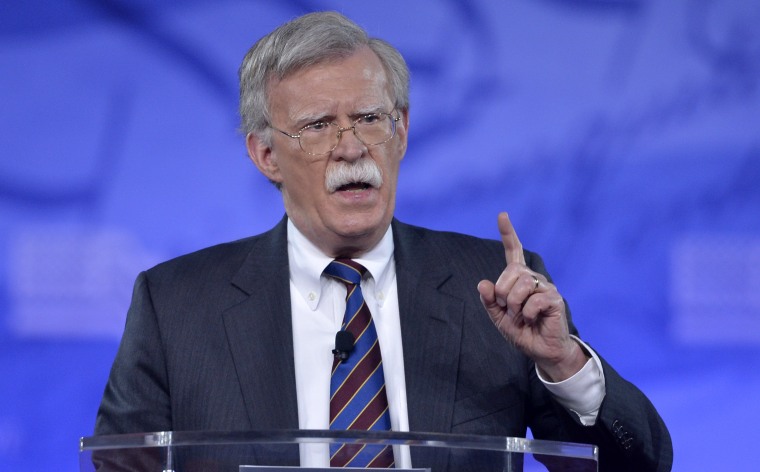The White House issued an official video message this morning from National Security Advisor John Bolton, who made a rather provocative claim about Iran.
"Iran continues to seek nuclear weapons to intimidate peaceful people all around the globe, and ballistic missiles to use as delivery systems."
And if that were true, it'd be an important assessment. The trouble, of course, is that while Donald Trump's White House national security advisor, a longtime proponent of an armed conflict with Iran, is peddling claims like these, the president's intelligence chiefs have drawn the exact opposite conclusion.
In fact, Director of National Intelligence Dan Coats recently told the Senate that Iran is not "currently undertaking the key nuclear weapons-development activity" needed to make a bomb. It's also the judgment of American intelligence agencies that Iran is actually abiding by the terms of the international nuclear agreement negotiated in part by the Obama administration (and abandoned by Trump for reasons that have never really made any sense).
This brings us to the awkward point in the debate in which the amateur president has to decide whom to believe: his own intelligence chiefs or the far-right pundit he hired to serve as White House national security advisor because Trump liked what he saw him say on television.
The trouble is, we already know that the president has made his decision.
When U.S. intelligence professionals told him the truth about Iran, Trump mocked them publicly and told the public that he doesn't have full confidence in the intelligence chiefs' assessments when it comes to Iran.
It led to a series of leaks about the president's "willful ignorance" when it comes to intelligence briefings and his capacity for understanding the information about critical national security developments.
The easy, surface-level reaction is to marvel at Trump's glaring limitations, but this morning's White House video serves as a reminder that this is more than just a point-and-laugh moment.
John Bolton, true to form, appears to be laying the groundwork for a confrontation. Quality intelligence is necessary to prevent a war -- and the hapless president has decided he isn't interested in seeing or hearing any information that conflicts with what he wants to believe.
